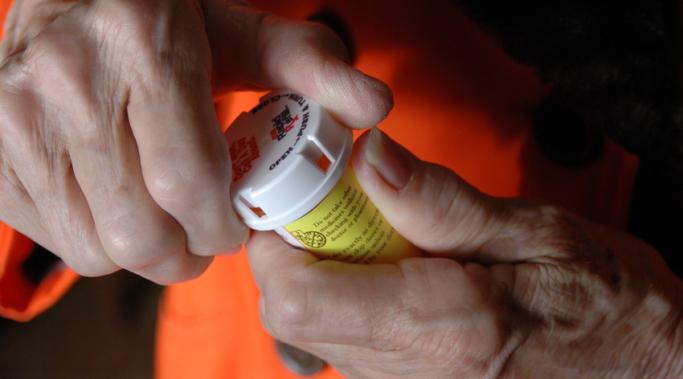Many times during treatment, you may have to consider whether to change your bipolar medication. This is a complicated question and a personal one. The answer varies from person to person. If you're considering changing your bipolar medication, here are some things to think about.
Talking to Doctors
While I know it's tempting, don't try to be your own psychiatrist. Trying to be the psychiatrist is a mistake. Psychiatrists train for 10 years to decide how to help you. Do you have 10 years of training? These people treat others like you every single day and thus have years of clinical experience under their belt. Do you treat others and have years of clinical experience under your belt? For most of us, the answers are "no" and "no." When you try to be the psychiatrist, you hobble your own treatment. And the trust is, I see people doing it all the time.
When you have bipolar disorder, advocating for your health is even harder. And honestly, doctors are often to blame for this difficulty. Not all doctors are the same, of course, but many treat people with serious mental illness in ways different from other patients. Learn why it's so hard to advocate for your health with bipolar disorder and what you can do about it.
Sometimes, you can't get to a doctor's appointment because you're just too sick. You might have too much anxiety to leave the house. You might be too depressed to get out of bed. You might be incapacitated by mental illness to the point where you can't get to a doctor's appointment when you need it the absolute most. This is a real barrier to mental health care that some people face. Read on for tips on what to do next.
Medical consensus in psychiatry is critical. Many people do have many opinions, of course, but understanding psychiatric medical consensus is what makes all the difference. If you have 1000 psychiatrists in a room, after all, you can be guaranteed someone is going to disagree on any subject, but who do you believe, the 999 or the one? And is a medical consensus in psychiatry worth more than the opinion of psychiatric patients?
Making doctors listen to you is actually a tall order. I know it seems like it shouldn't be, but it is. If you read my piece last week, "Psychiatrists Won't Listen to Patients -- 8 Reasons Why," (applicable to any type of doctor) then you have an idea as to why. So while last week I focused on the problem, this week I want to focus on the possible solutions. Here is what you can do to make doctors listen to you.
Why won't many psychiatrists listen to patients? Your psychiatrist is supposed to be helping you. Your psychiatrist is supposed to be on your side. You and your psychiatrist are supposed to be a team to fight mental illness together. But this just doesn't always turn out to be true. So many of us have, in fact, experienced the opposite. So why is it that psychiatrists won't listen to patients?
When I was first diagnosed, I went through 18 months of medication trials without success. I initially tried a bunch of antidepressants thanks to misdiagnosis and then I went through mood stabilizers when it was confirmed that I had bipolar disorder.
And every medication was pretty much the same. I would take the drug, it would induce horrible side effects, I wouldn’t be able to tolerate the drug and then I would have to try something else. It was unadulterated hell.
After 18 months of that, I went to my psychiatrist’s appointment, sat down and looked at my doctor as he threw his hands in the air and said, “I can’t help you. You’re no longer my patient.”
My doctor had fired me.
This morning, a girl from the United States (I’m in Canada) contacted me and said she had taken 40 pills in a suicide attempt and now needed help immediately.
Please don’t do this.
Please don’t treat the internet like it’s 9-1-1. It isn’t.
It just so happened that I was checking the comments on my blog three minutes after this girl posted this comment so I caught it in time. (Help was called.) But I very much could have missed it. It could have taken me hours to get to this comment. I get many comments and emails and sometimes it takes me a long time to get around to reading them, let alone responding. I am, in no way, an emergency service.
Reaching out to someone is always better than reaching out to no one, but please, if you need mental health help, know who to reach out to.
In psychiatric studies, generally response and remission are recorded for the effectiveness of medications. So, a certain percentage of people positively respond to medications (get somewhat better) and a smaller percentage of people go into remission (get mostly better) from medications. The definitions of “respond” and “remit” vary, but typically it’s a reduction in symptoms, as measured on a scale, to a specified degree.
In practice, this means that a medication can still be deemed “effective” even if it only moves you from a 10 to a 5 on a scale of depression.
Well, this isn’t good enough.









